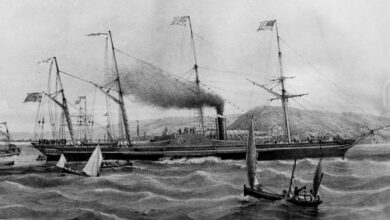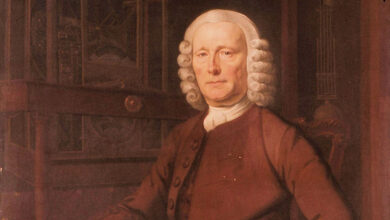The Night ‘Waterloo’ Conquered Europe: ABBA’s Eurovision Victory
On a memorable evening in Brighton, England, the 19th Eurovision Song Contest unfolded on 6th April 1974, setting the stage for what would become one of the most iconic moments in the competition’s history. The contest, renowned for celebrating diversity and unity through music, witnessed an extraordinary event that would leave a lasting imprint on the world of pop music. Amidst the glitter and glamour that typifies Eurovision, a relatively unknown Swedish group called ABBA clinched victory with their performance of “Waterloo,” catapulting them to international stardom and forever altering the course of pop music.
The Eurovision Song Contest 1974 was hosted at the Brighton Dome, chosen for its distinguished history and architectural splendour. It provided a fitting backdrop for an event of such cultural significance. That year, the contest was fiercely competitive, featuring acts from across Europe, each bringing their unique musical styles to the fore. However, ABBA, with their catchy tune, flamboyant costumes, and charismatic stage presence, captured the hearts and votes of the audience and judges alike.
“Waterloo” was more than just a winning Eurovision song; it was a masterstroke of pop music that combined infectious melodies, memorable lyrics, and an energetic performance that resonated with viewers across the continent. The song’s historical references to Napoleon Bonaparte’s defeat at the Battle of Waterloo served as a metaphor for surrendering to the forces of love. This theme struck a chord with the audience. ABBA’s victory in Brighton was not merely a triumph in the contest but a launching pad for a career that would make them one of the best-selling music artists ever.
The win at Eurovision was a defining moment for ABBA, establishing them as a global musical phenomenon. In the years that followed, they would go on to release a string of hits, including “Mamma Mia,” “Dancing Queen,” and “Fernando,” each solidifying their place in the annals of pop music. However, “Waterloo” remains emblematic of their breakthrough, a song that encapsulates the essence of Eurovision by blending catchy pop with a unifying theme that transcends linguistic and cultural barriers.
The 19th Eurovision Song Contest also underscored the competition’s significance as a platform for emerging talent. ABBA’s success story exemplified how Eurovision could act as a springboard for artists to achieve international acclaim. This narrative has encouraged countless musicians to participate in the contest.
Reflecting on ABBA’s victory, the 1974 Eurovision Song Contest is remembered for its winner and role in heralding a new era in pop music. It showcased the power of a song to transcend national boundaries, fostering a sense of unity and shared joy among millions of viewers. As we look back at that night in Brighton, it’s clear that the contest was more than a competition; it was a celebration of music’s universal language and ability to unite people.





